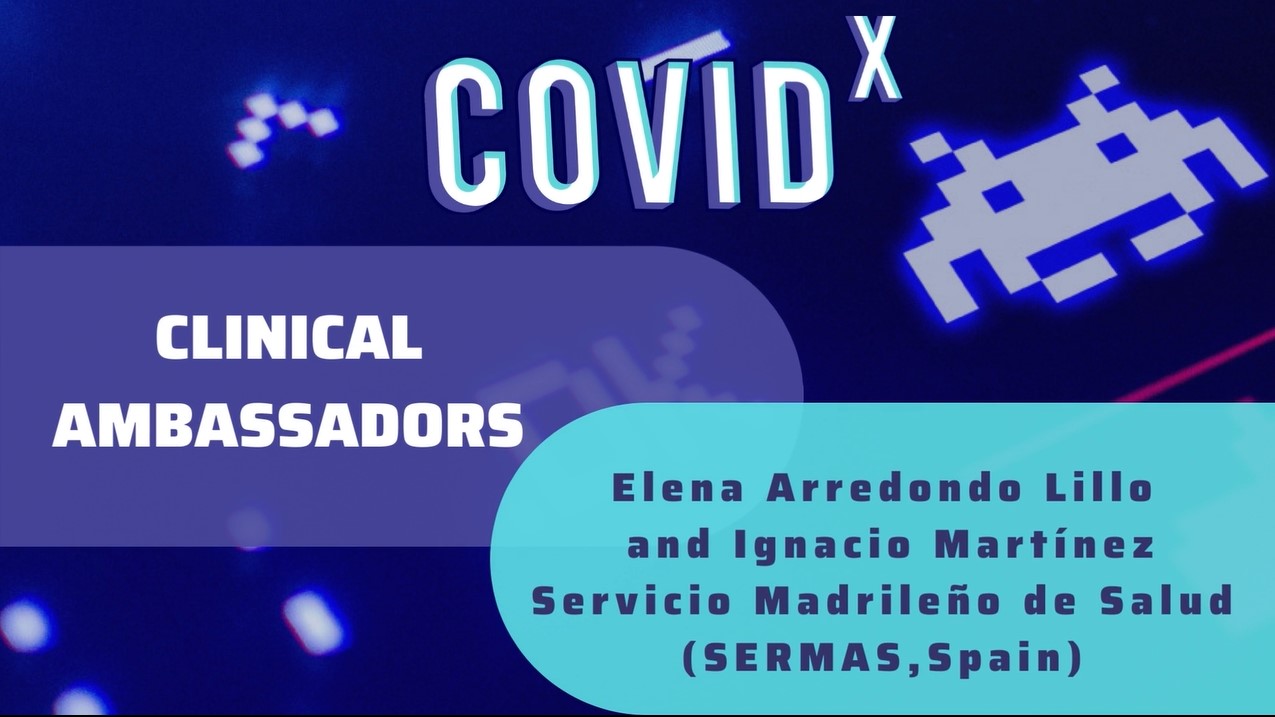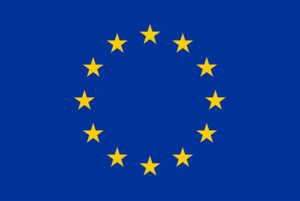Click here to watch the video!
In this interview, COVID-X clinical ambassadors Elena Arredondo Lillo and Ignacio Martínez are sharing their unique experience of participating in the project as the members of the Servicio Madrileño de Salud (SERMAS), one of the COVID-X clinical partners.
Get to know what they answered about the project, their organizations’ experience of working with SMEs, the impact of the solutions and if they would recommend other hospitals to work with start-ups!
Meet the COVID-X Clinical Partner:
Servicio Madrileño de Salud (SERMAS) is the administrative and management structure that integrates every public hospital and every public health service of the Madrid Regional Health System. It constitutes the biggest regional healthcare organization in the Spanish National Health Service.
Hospital Clínico San Carlos (HCSC) is a reference centre at a national and an international level for its facilities and its professionals.
Meet the COVID-X Clinical Ambassadors:
Elena Arredondo Lillo is a civil Engineer working as Innovation Project Manager in the Innovation Unit of Hospital Clinico San Carlos, SERMAS, Madrid. With more than 15 years of diversified experience within the construction and healthcare sector in product, technology, know-how and process innovation, she has a high capacity for project analysis at a global level.
Ignacio Martínez is a biomedical engineer and data scientist who works at the Innovation Unit of the Hospital Clinico San Carlos, SERMAS Madrid, with a previous career in research centers of the HM Hospitales Group and CSIC, and participation in national and international projects, both clinical and non-clinical. Ignacio is an expert in data analytics and machine learning, highly experienced in transforming real-world data into clinical support tools.
- Why did you join COVID-X?
Elena Arredondo: As a member of the Innovation Unit of the Hospital Clínico San Carlos, one of my activities is to participate in programmes to bring innovative technologies to the healthcare environment. That is why participation in projects such as COVID-X is enriching from several points of view, as it favours interaction at the European level between small companies and high-level hospital centres.
Ignacio Martínez: It brings together very different worlds: on one side, big public health institutions, which have the data and the patients but are slow to develop solutions when faced with a crisis, such as the pandemic, and on the other hand, small startups, which have the agility to develop and provide this solution but lack the data to do so. So projects like COVIDX are great opportunities for closing this gap.
- What did you get the most from the project?
Elena Arredondo: On a personal level it is rewarding to be part of this project because of the heterogeneity of the participants and the common interest among all of them: to fight against COVID-19. On a professional level, the interaction with more than 100 small European companies and their inclusion in 2 “acceleration” programmes has been very enriching and dynamic.
Ignacio Martínez: We have had the opportunity to learn a lot in terms of the current legal framework surrounding data protection and ethics, as we have been responsible for providing support in those areas, both from a theoretical perspective but also a practical one, as we have had to design and write the appropriate documents and work with new software tools that ensure that the data used in the project has the adequate level of protection.
- How was your experience working with a technical startup/SME?
Elena Arredondo: The experience has been quite positive as my hospital has provided clinical input to improve the validation of the technology developed by an EMS.
Ignacio Martínez: It is also nice to see how passionate the team of a small startup can be with their work and how they really want to make an impact in the health domain. In fact, we are so happy with this collaboration that we are in the middle of conversations with one of the services of our hospital to deploy this SME solution here.
- Why do you think other healthcare providers shall use the solutions?
Elena Arredondo: It increases awareness of innovative technologies being developed at the European level, thus enabling the accelerated introduction of such technologies in the healthcare environment.
Ignacio Martínez: The healthcare sector might be a little bit reluctant to change but it is clear that the use of new technologies is going to be a key part of taking health to the next level, and the solutions developed during this project are perfect examples of the direction we are heading towards: telemedicine, use of artificial intelligence to detect diseases or to augment hospital capabilities.
- What do you think is the impact of the overall programme?
Elena Arredondo: The main impact has been to increase knowledge about COVID-19 and the different ways to combat it.
At the same time, evidence has been created with regard to the following aspects:
-How the integration of multidisciplinary profiles improves the solutions reached.
-How the use of data accelerates the achievement of the solution.
How a common European policy and regulation on the adoption of AI-based technologies in the healthcare environment is urgently needed.






